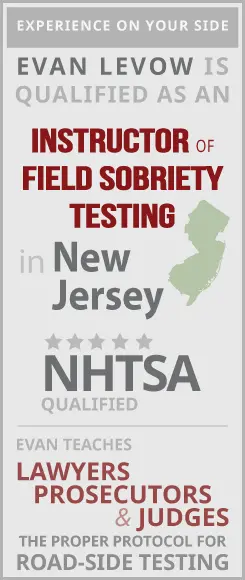According to the National Institute of Drug Abuse, more than 20% of the labs that process urine tests for the presence of drugs or alcohol have reported “false positives.” Two out of every 10 labs have found positive signs of illegal substances, when the urine was actually clean.
Obviously, urine testing is far from accurate.
In line with these findings, New Jersey’s courts consider urine testing the least “scientifically reliable” form of chemical test. When presented as evidence of a driver’s impairment, they are commonly found inadmissible due to errors that invalidate the results.
How Should Urine Tests Be Administered?
If you’re facing a DUI charge, whether for alcohol or other intoxicating substances, there are many ways to challenge the results of a urine test.
Was your urine test conducted appropriately? Officers must follow rigorous protocol in all forms of chemical testing. In the case of a urine test, this includes:
- giving a driver a reasonable amount of privacy
- instructing a driver to empty their bladder, waiting 20 minutes and then repeating the test
But the most common errors occur far from the police station. An intricate “chain of custody” must be ensured to preserve the integrity of a specimen. If your urine sample was not stored correctly, or its movement from the arresting officer to the testing facility cannot be accounted for, it’s very likely that the results can be contested.
Facing a DWI based on drugs? Find more information here.
Why Are Urine Tests Unreliable?
In the case of illegal or controlled substances, urine tests only indicate the presence of a drug. They say little to nothing about when the drug was consumed. Obviously, just because a driver smoked marijuana on Wednesday, does not mean that they are impaired the next Saturday.
Moreover, most urine tests do not screen for an actual drug. Instead, they screen for metabolites, the pieces of the drug that are left over in your system after your body has broken its main chemicals down. But many over-the-counter drugs produce the same metabolites.
For example, an active ingredient in many widely-prescribed ADHD (attention deficit hyperactivity disorder) medications, like Adderall, metabolizes into amphetamine after consumption. The presence of this metabolite will almost always trigger a positive result in a urine test, despite the fact that the drug is perfectly legal and may very well have been prescribed to a driver. In short, urine tests are likely to “confuse” medications that you have every right to take with illegal ones. Even over-the-counter medications have been mistaken for intoxicating substances.
When Is Urine Testing Used?
Because of their unreliable nature, the use of urine tests is limited. Generally, they’re only administered to screen drivers suspected of driving under the influence of drugs. If an officer suspects you of driving drunk, it’s very unlikely that you’ll be told to submit to a urine test. Instead, most officials will rely on breath testing to determine your Blood Alcohol Content (BAC).
In fact, testing a driver’s urine for the presence of alcohol is almost always an unreliable measure. Instead of screening your blood, which is the standard written into New Jersey statute, urine tests screen water. But the concentration of alcohol in water will always be higher than that in your blood, no matter how much you’ve had to drink. This fact has been scientifically substantiated: the water in an average body carries around 1.33 times more alcohol than the blood does. As a result, urine testing for alcohol usually leads to erroneously inflated results.
Contact The DUI & DWI Defense Experts At Levow DWI Law
As we’ve seen, the results of a urine test are open to challenge. With the help of an experienced defense lawyer, you can contest the results of a DUI charge and return to your life.
At Levow DWI Law, P.C., our attorneys have the experience and unmatched qualifications to challenge your test and beat the State’s case. We’ve received advanced training in the proper administration and common pitfalls of urine testing, studying with the country’s brightest minds at comprehensive seminars. In fact, Evan Levow, our senior and managing partner, frequently lectures on chemical testing and Drug Recognition Evaluation (DRE) himself.
Contact our team today for a free consultation. After reviewing your case, we’ll advise you on the best way forward. Call 1-877-735-2288 or complete our online contact form. There’s no obligation, just proven expertise and critical help.


